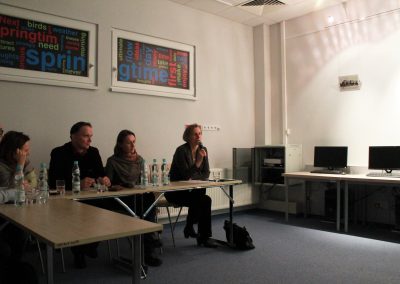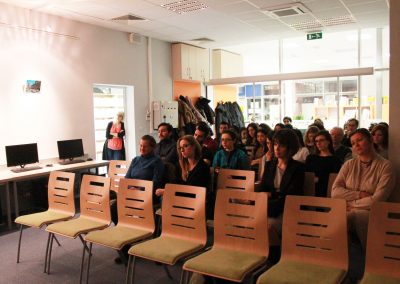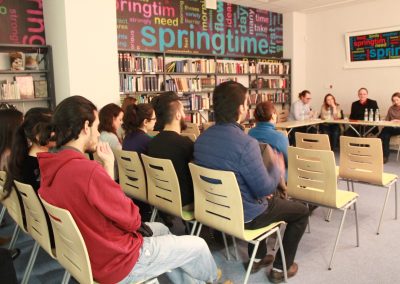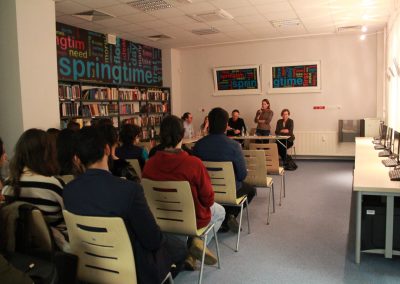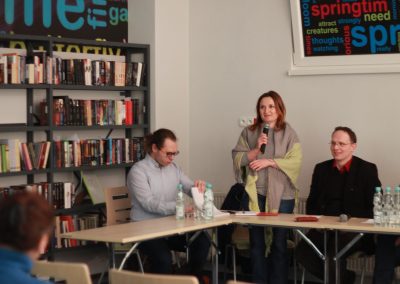On Wednesday we met in the Municipal Library Fil. 4 to participate in the debate entitled Gender ideology(ies): Man and woman – different by nature, inequal by society? We tried to find the answer to this question with our four guests: sociologists Borys Cymbrowski and Anna Czerner, philologist Katarzyna Molek-Kozakowska and biologist Elżbieta Pogoda.
We were aware that for most people the term gender is unfamiliar or even unfriendly, especially when someone is not a philologist or a social researcher, so we started with the basic questions: what gender is, how it exists in our respective fields of studies, and if there exists gender ideology. We can say that gender in general is about social consequences of being men, women or the others, because in the opinion of Elżbieta Pogoda even from a biological point of view there are more than only two sexes. And there is no evidence that one sex has an advantage over another.
In Polish media we encounter some false beliefs about the meaning of the word “gender”. But as Borys Cymbrowski mentioned it is a problem of confusion of nature with culture, because in the Polish language we have only one word (płeć) for gender and for sex. So some commentators confuse biological meaning with the cultural one. They accuse gender scholars of promoting a dangerous ideology which tries to convince people to choose their sex. As Anna Czerner said, the truth is that in the social sciences gender was a neutral category to analyse the relations between people in society, but unfortunately some institutions and politicians took one of the least popular topics in gender studies and used it as a basis to create and apply gender ideology as a political tool.
After that we focused mostly on language aspects within gender issues. Katarzyna Molek-Kozakowska indicated that for her it was easier to introduce herself in English than in Polish, because in Polish most names of academic professions have only a masculine gender, or even if it has a female gender, masculine forms sound more serious and more prestigious. But language is not a constant phenomenon – it is changing all the time. Twenty years ago we considered some female forms of words as strange, but today we take them for granted. We concluded that it is important to include more women-related forms to language, and it is one of the main catalysts of social changes in the public sphere.
We are really glad we could discuss it with you and with the citizens of Opole. We would like to thank you all for your presence and participation, and we hope to see you soon during another discussion. The aim of the whole debate was to clarify a little the problem of gender, but two hours is a short time when you are discussing such an important and complicated topic – so we treat this meeting only as a start. The debate is still open.
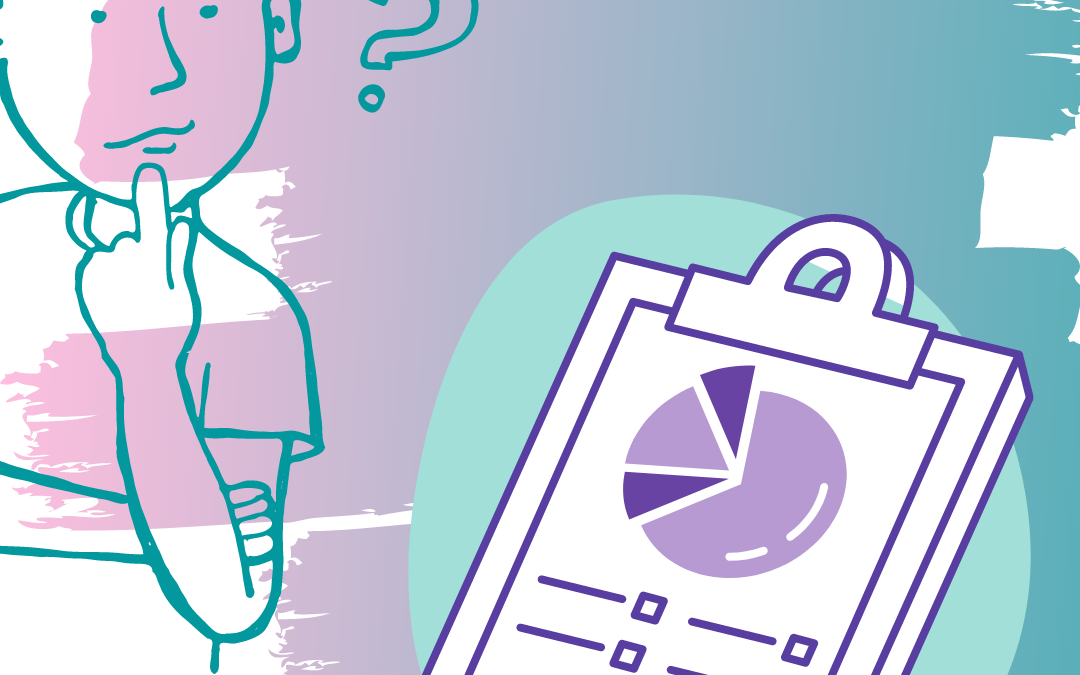
Internationalization in higher education – survey
Dear Students! We kindly encourage you to fill in the survey for students and take part in the research on internationalization of higher education! The survey was created for the purposes of a doctoral thesis. It will take about 10-15 minutes to complete! We’d really...
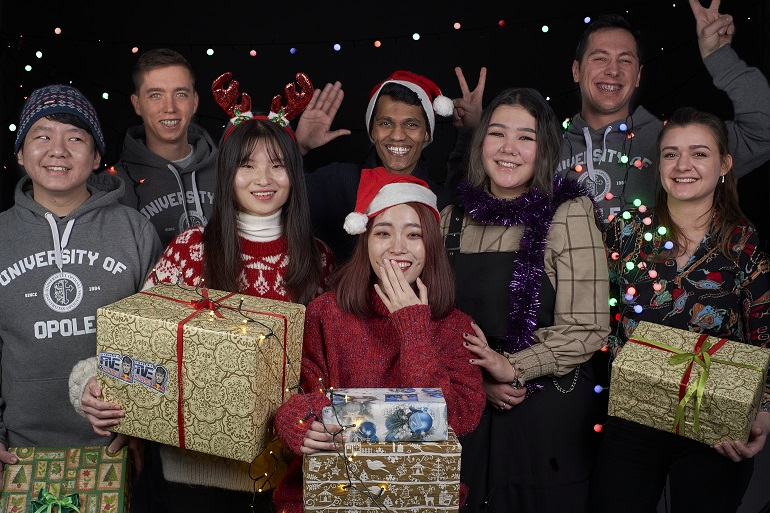
Merry Christmas & Happy New Year
Dear Students! We wish you a joyful, peaceful and beautiful Christmas and all the best in the coming New Year, and above all good health, optimism, good humour, fulfilment of dreams and plans! More News
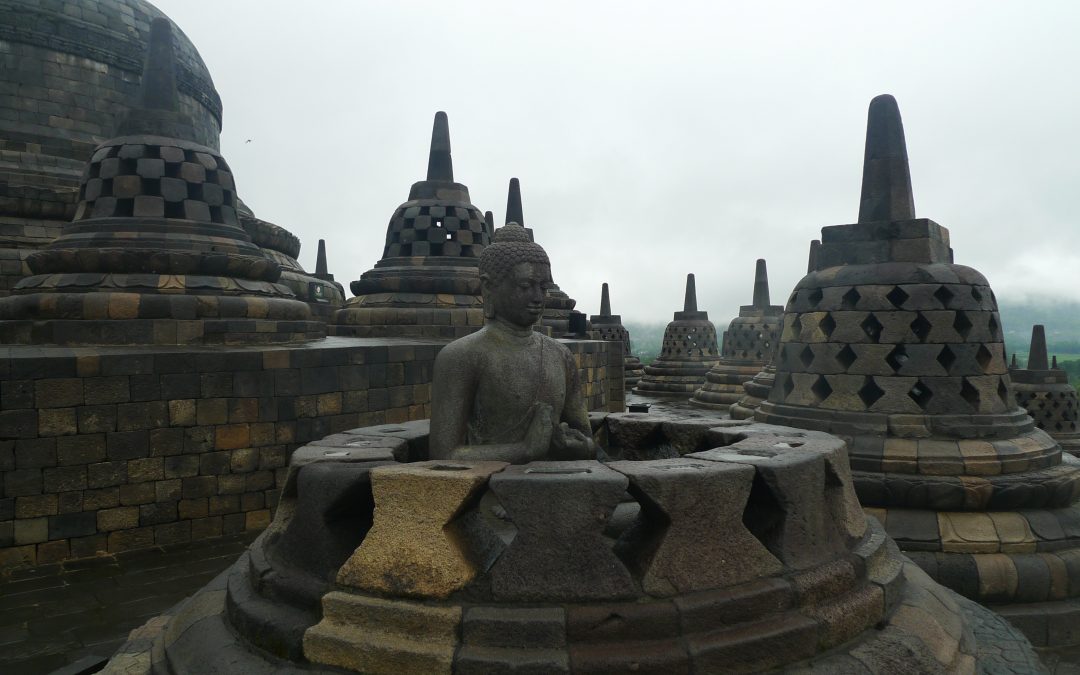
Virtual exchange programs in Indonesia 2022
Universitas Airlangga in Indonesia would like to invite UO students to join their virtual exchange programs, AMERTA XV (Academic Mobility Exchange for Undergraduate and Master at Airlangga Batch XV) and LINGUA (Learning Indonesian Language at Universitas Airlangga)....

Online classes
Dear Students! Please be informed that Rector of the University of Opole decided that from 20-22 December all classes at all study programmes will be held in the online mode. More News
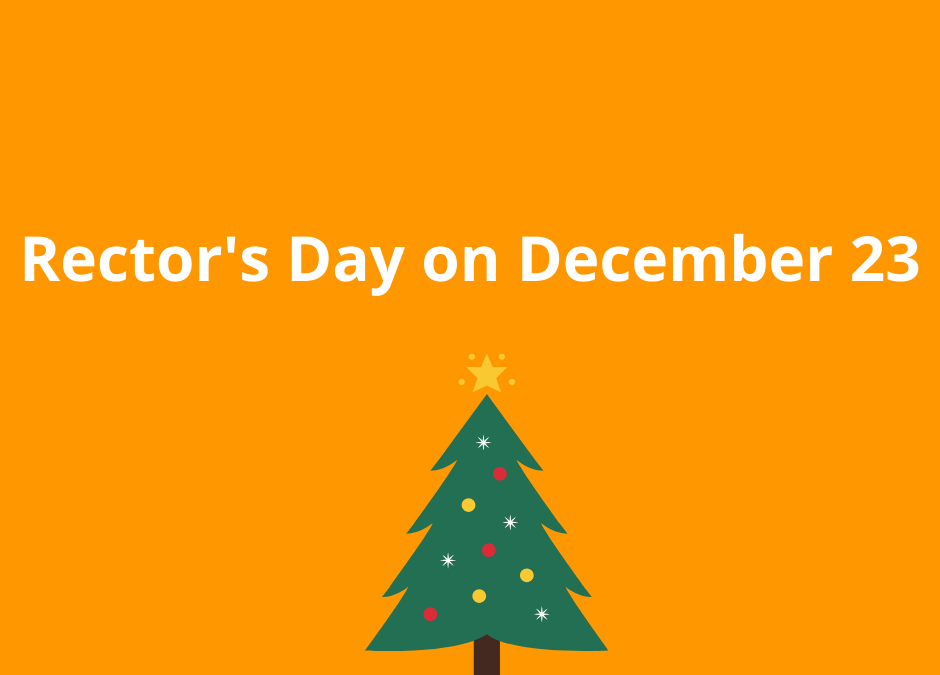
Rector’s Day on December 23
Dear Students! On the occasion of Christmas, the Rector of the University of Opole has announced December 23, 2021, a day off from teaching activities. Practical classes and internships in health care facilities take place as scheduled. More News
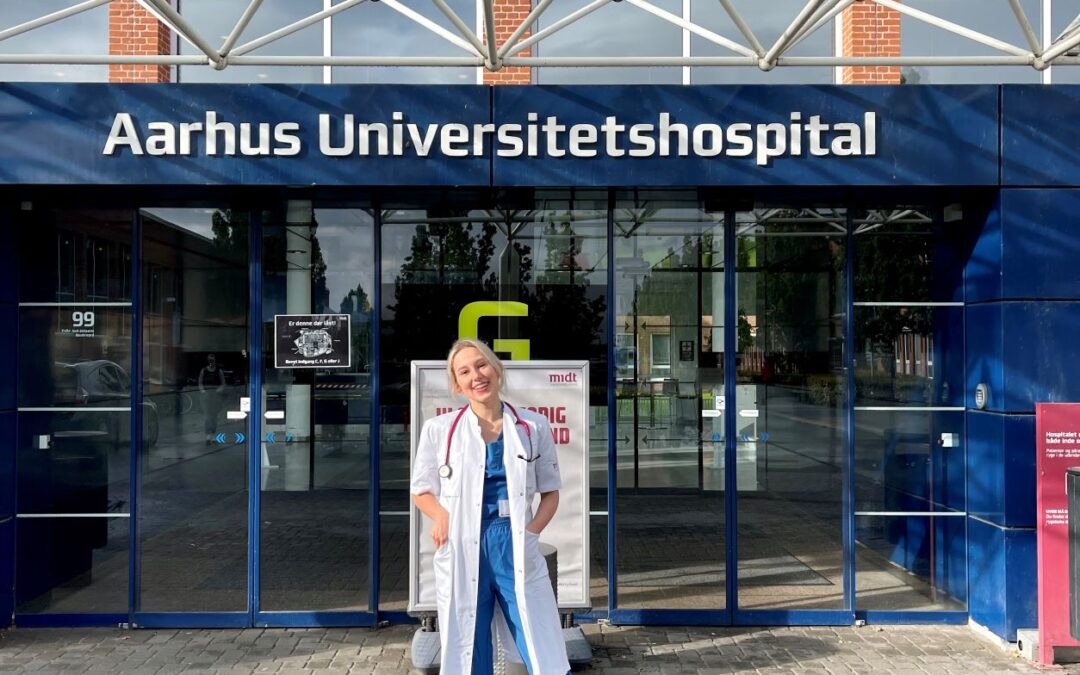
Ola’s internship in Denmark
Hello Everyone! It's time for a new story about an Erasmus experience! Ola will tell us about her adventures in Denmark 🙂 Hey Ola! Please tell us something about yourself 🙂 My name is Ola Śledziewska. I am 22 years old and I come from Poland. I am currently on the...
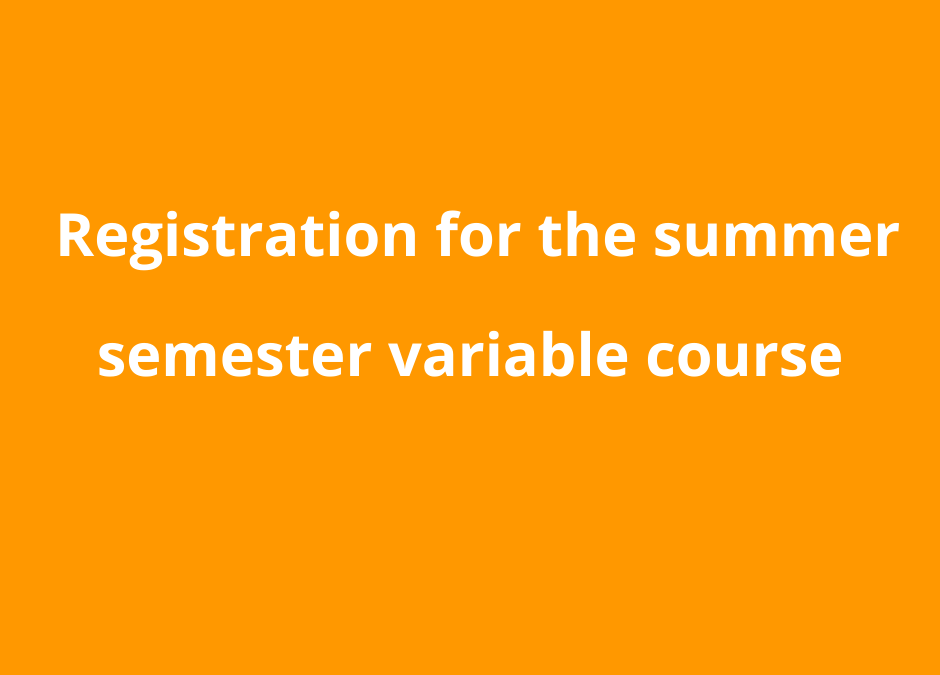
Registration for the summer semester variable course
Dear Students! The first round of electronic enrolment for the university-wide variable courses in the summer semester of the academic year 2021/2022 starts on December 03, 2021. Reminder: - Each course is 15 hours long. - Students are required to...
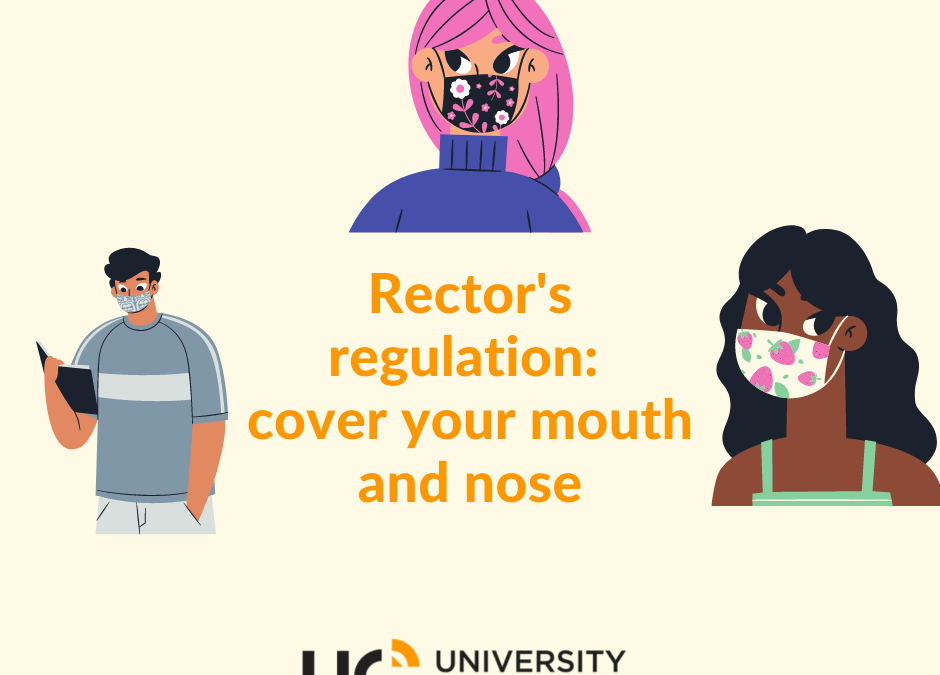
Rector’s regulation: cover your mouth and nose
Dear Students! Concerned about the life and health of students, doctoral students, participants in other forms of education and people employed at the University of Opole, in connection with the spreading threat caused by the COVID-19 virus, as of 29 November...
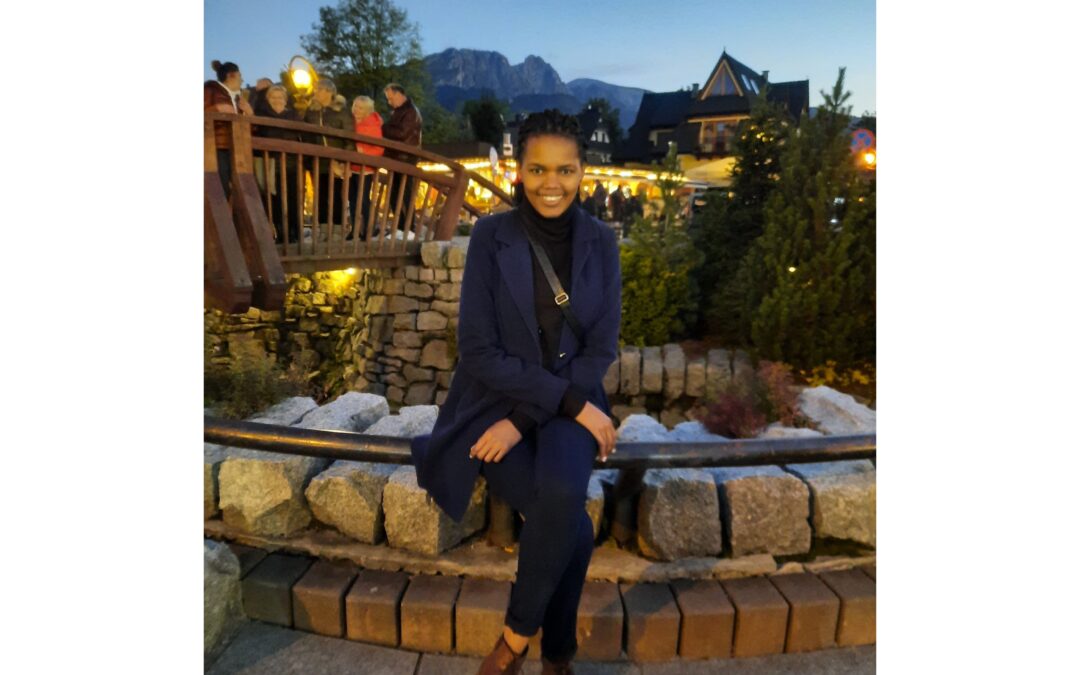
International student – Christina from Tanzania
Hello Everyone! It's time for a new story of an international student at the Univeristy of Opole! Today our guest is Christina from Tanzania! Hello Christina! Please tell us something about yourself 🙂 Hello everyone! I'm Christina Massawe from Tanzania, I’m 26 years...
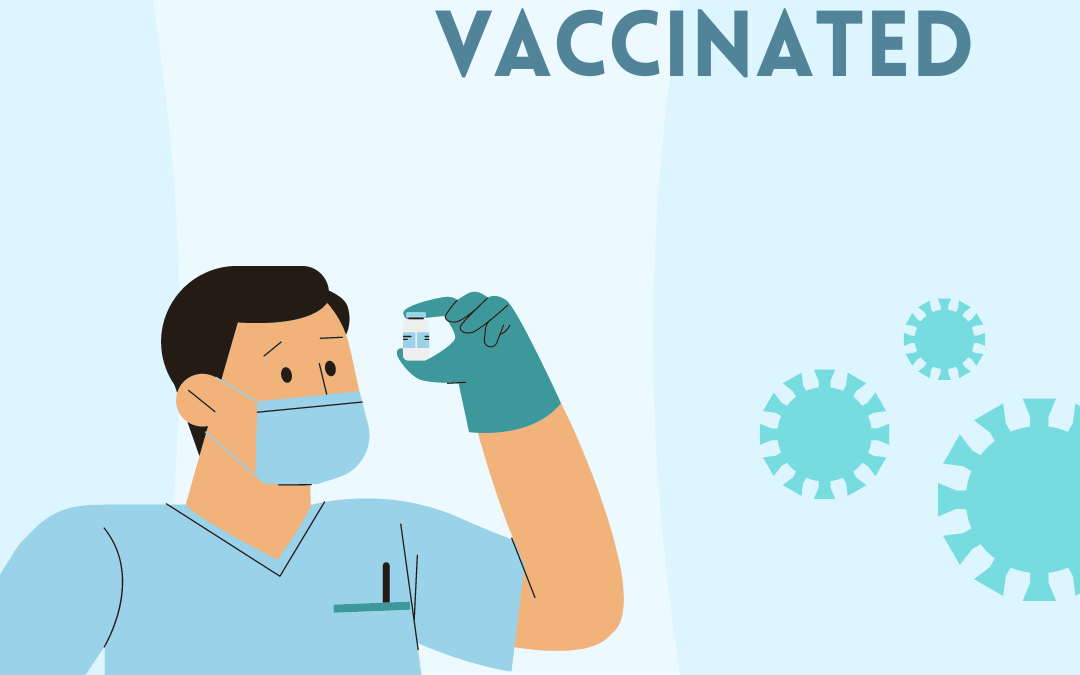
Vaccinations against COVID-19
Dear Students! For the sake of your health, we encourage you to take part in #vaccination action The majority of adults have registered and got vaccinated for Covid-19 until now. We encourage you to do the same! Please, follow the instruction on registration...
